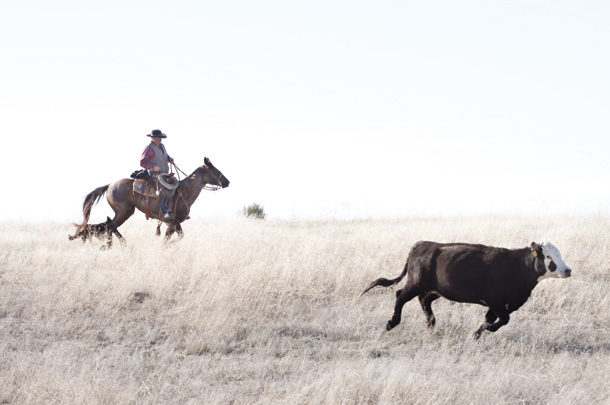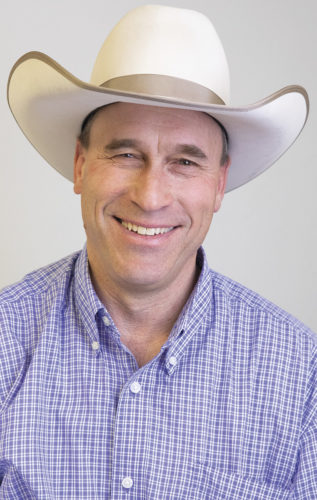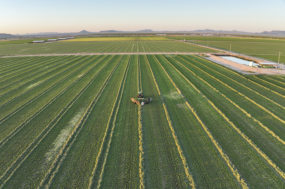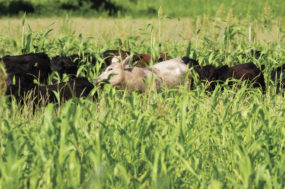Earl calls the Heartland his home. He grew up milking cows in the country around the Missouri Ozarks, and he’s passed his love of cows and tractors on to his two sons. His affinity for tractors and how they run has developed into a nice little side gig.
He and his son have enlisted the savvy of his sister, Julie, and together the trio is always on the front end, the back end or in the middle of fixing up, buying or selling a tractor. Earl’s pretty particular when it comes to pulling the trigger on a tractor deal. If a guy’s not careful, the margins can be pretty tight. He’s sharp enough in every step of the process, it’s a pretty rare occurrence that finds him losing a dollar on one of his tractor deals. He has a few rules on his do or don’t list. At the top of that list is this: Don’t buy a tractor from a cowboy.
Through the sieve of experience, Earl has learned that, regardless of the stockmanship acumen and husbandry skills of most of those who prefer to be known as cowboy (or whatever term applies to your particular regional vernacular), more often than not they are terrible stewards of their equipment.
One of the tenets crucial to the success of “Earl and Son and Sister Tractor Renovation” stems from an “Earlism” which, when uttered with just the right inflection of southwest Missouri drawl, makes a lot of sense. In the event that Earl ends up with a tractor from an outfit that’s primarily a glorified cow camp, Earl will always refer to rule number one and casually assert, “We’ll have to knock the cowboy off of this one before we can sell it.”
My initial and natural reaction to rule number one was from both sides of the ball. I became defensive at such an offensive pronouncement. However, after taking a step or three back and making a valiant effort to look at the issue from an objective viewpoint, I realized that “rule number one” may truly have its merit.
My mind was set to pondering on this very subject the other day when I ran into Charlie. Charlie’s a native son of the high-desert Owyhee country in southwest Idaho. He’s a lot more cerebral and sophisticated than he’ll ever publicly admit, but he’s most certainly not one to give a rip (my choice of words, not his) about what anyone may think concerning his expressed opinions. Charlie’s not a politician in anybody’s world. He’s as honest and solid as they come – but has, on more than one occasion, been known to simultaneously enrage and delight an audience.
Charlie discovered a little jag of yearlings up in the far corner of one of his pastures – and when I say pasture, I’m referring to an Owyhee pasture – three sections of greasewood interspersed with a generous helping of black sage and garnished with a sprig or two of crested wheat at 50-yard intervals. This particular pasture was private ground, but it bordered some BLM ground, and these particular yearlings belonged to his neighbor. With grass being the precious commodity it is, Charlie was resolutely intent on doing the neighborly thing and returning the offending critters to their rightful home.
As he came up out of the draw with his little herd of strays, a quarter-mile from the gate, what should our hero encounter but what could accurately be described as a Brady Bunch-Addams Family reunion, complete with half-a-dozen four-wheelers, five side-by-sides, four dogs of the obnoxious variety, a passel of kids and an equal number of wide-eyed city-dwelling chaperones. It looked like the circus had set up shop right at the gate as a rowdy welcoming committee for the lone buckaroo as he returned with his bounty.
There was potential for things to get pretty western, which they did. Charlie was dead-set on finishing his task – and whether the job was completed with certified stockmanship methods or 60 feet of nylon and the mule hide-wrapped horn of a 16-inch Wade, atop a big-footed, desert-bred cayuse, the job would get done.
With nary a harsh word directed at his audience, Charlie shone as the star of the Elmore County dog and pony show. And when the show was over, and every critter was through the gate, he returned to his adoring and grateful audience, each member having just witnessed his first and most authentic one-man Wild West show.
Contrary to the nature of his younger self, Charlie took the time to step off his horse and have a friendly conversation with a group of folks who would now forever be his fans and, by extension, most likely fans and supporters of cowboys and punchers everywhere. Even though they were ignorantly trespassing on private property, Charlie took the high road, leading to the higher and nobler destination, and chose to befriend and welcome the interlopers rather than alienate three generations of consumers.
Though it took a stout hammer and a sharp chisel, Charlie knocked a little cowboy off his mystical persona that day. But even at that, he didn’t become less of a cowboy; he became more of a gentleman. And that’s a sweet spot to be in.












